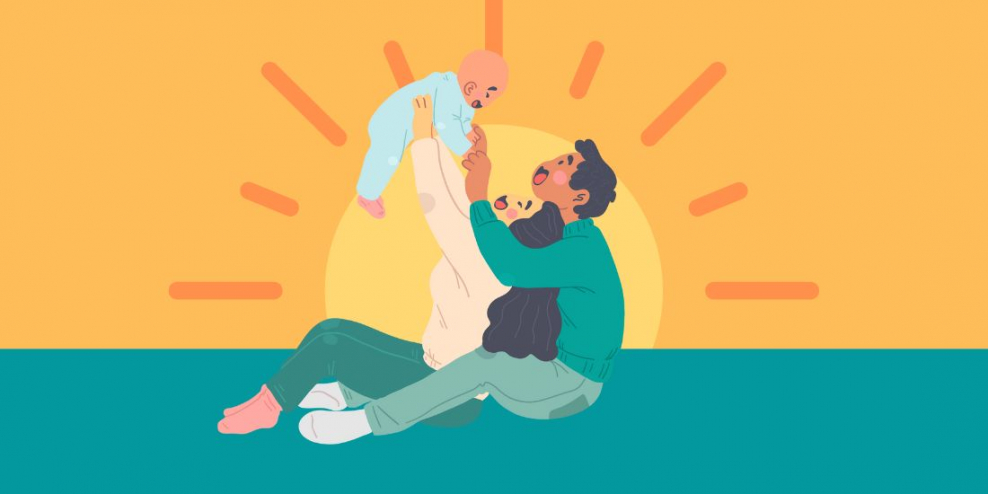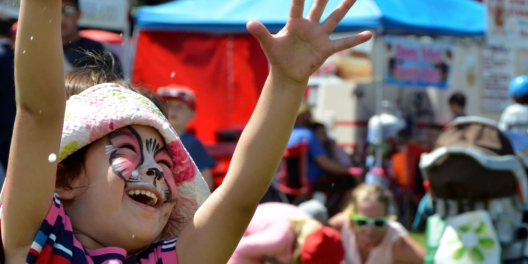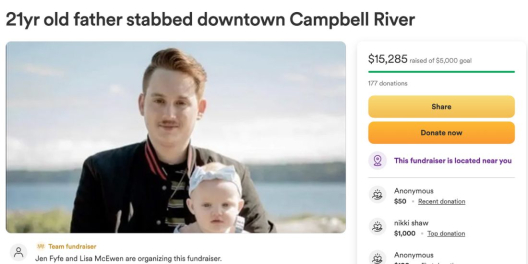Pandemic babies have gotten a wild start.
They’ve been born into a pretty hectic (to say the least) period in time, and for the Tseshaht First Nation, it’s high time to give them a proper welcome to the world.
“It really comes from an old teaching of honouring the life of a person,” said Trevor Little (Nawe-thleet), a teacher at Haahuupayak to Ha-Shilth-Sa.
Family and friends filled Maht Mah’s gymnasium with an adorable entourage this weekend, welcoming the community’s new babies with drums, song, and laughter.
“There were stages…as a child grew up that we’d honour their growth, their moments, the transition to another step in their life,” continued Little. “This stuff used to be honoured all the time, and so we’re honouring their arrival right now.”
The youngest babies may have been the ones being celebrated, but the older children got celebrations of their own. They filled the rooms with endless games of tag and joyful chaos.
“We call our children ‘usma’, and that means precious,” said Lena Ross (Nasgaadan), another teacher at Haahuupayak. “We need to treat them in that way, in everything we do.”
Throughout the gymnasium, community services like Pacific Care Family Enrichment Society were set up for families to learn more about and get involved with.
The Literacy Alberni Society and Pacific Rim Children and Families brought tons of books and toys, and Nuu-chah-nulth Tribal Council Children and Youth Services truly stole the show. They gave all the cuties the ultimate pampering with “infant massages.”
“We have such an investment in the future generations,” said Ross. “It’s a real investment.”
Beyond all the extras, though, the event was truly about creating a connection in the community.
Michelle Colyn from the Gallic family told Ha-Shilth-Sa that it’s important that her children know their family roots and connection to Tseshaht.
“[It’s important] that they have a sense of belonging in this,” said Colyn. “Over the past couple of years, the pandemic, it’s been tough not having all the access to the cultural events we may have participated in.”
During the event, mothers and female guardians were guided through the construction of cedar headbands, while the fathers and male figures were led through the making of a drum.
“The drum is our heartbeat,” said Gail K. Gus, Tseshaht’s crisis and wellness coordinator. “Cedars are strength, and the women are our strength.”
These later became each child’s welcome gifts.
It takes so much support and courage to raise a child, and another key part of the event focused on creating group discussions around parenting.
At one point, families engaged in separate female and male discussion circles to honour both spirits in the child.
The men made their way to the longhouse. There, Little spoke to the group about commitment to their families, and the type of parent they want to be for their children.
The women had a similar discussion circle to themselves.
Once the mothers and children arrived in the longhouse, family by family, the male figures gave their children the drum they made, along with a declaration of their intentions and hopes for their children, surrounded by witnesses.
Little said that this kind of engagement has a huge impact on the relationships between parents and children.
“When I watch [a specified parent] now, hold his baby over there, it’s different. It feels different.”
This kind of practice has been done for centuries in the nation, but the last ceremony was performed in 2018. It’s lovely to see it happening again.
Welcome to the world, little ones.









